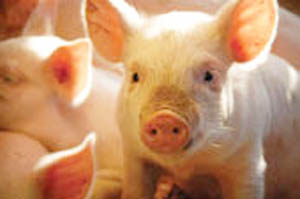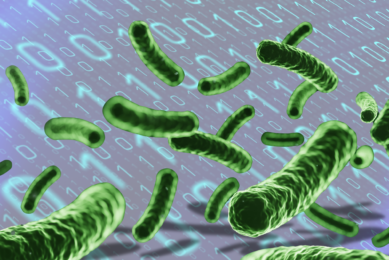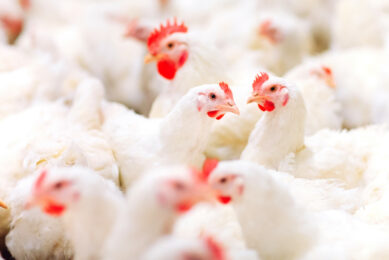Combating weaning stress in piglets

Stress can be a big problem for a piglet’s health, particularly during weaning, when stress can compromise the workings of the piglet’s gut. Fecinor soluble can help combat these negative effects.
Apart from absorbing nutrients, the gut is also the barrier against unwanted compounds and germs. However, these mechanisms can be disrupted by stress factors. One of the best studied is weaning. Feed intake drops during the first week after weaning and the scarce body reserves are mobilised, villi height is reduced and the proportion of immature enterocytes increases, therefore the enzymatic activity of the gut is reduced.
A biological barrier in the piglet’s gut is formed
The gut microflora is also altered, Lactobacilli population decreases and at the same time E. coli numbers increase. Enterococcus faecium the bacteria present in Fecinor soluble is a very well-known LAB (Lactic acid bacteria) capable of producing lactic acid through sugars fermentative metabolism. This bacteria multiplies at a rapid rate (doubling in CFU count every 19 minutes), and adhere to the intestine epithelium forming together with lactobacilli, a “biological barrier”.
Supplementation in weaning period makes transition easier for piglets
Fecinor soluble also produces a large quantity of enzymes that increase digestibility. It transforms more than half of the available sugars to acids known to have antibacterial effect; these acids regulate the intestinal pH promoting the conversion of pepsinogen into pepsin, increasing the endogenous proteolytic capacity. E. faecium also have an impact on the active transport of nutrients. An increase in glucose and phosphorus uptake from the jejunum was observed in a recent study (M.C. Walsh et al., 2014) in which Salmonella challenged animals were treated with E. faecium. The supplementation in the weaning period with a high growth rate LAB makes the adaptation to the new condition easier for piglets.
Source: Norel











